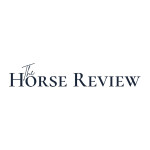Content sponsored by Kentucky Equine Research (KER)

Muscle pain and impaired performance that occurs during or after exercise is known as exertional myopathy and more colloquially as tying-up. In the context of athletic horses, any myopathy has the potential to derail performance, either temporarily or permanently. Some myopathies are so severe that, when left unaddressed, horses are unable to be used for any athletic endeavor.
The most diagnosed myopathies are sporadic and recurrent exertional rhabdomyolysis (RER), polysaccharide storage myopathy (PSSM), and myofibrillar myopathy (MFM). Other diseases may also cause problems in horses, sometimes by mimicking the clinical signs of RER, PSSM, or MFM. These include shivers, seasonal pasture myopathy (SPM), hyperkalemic periodic paralysis (HYPP), and myosin heavy chain myopathy (MHCM), among others. A veterinary specialist can help sort through the clinical signs and diagnostic tests necessary to achieve an accurate diagnosis.
Over the last four decades, research has led to a more sophisticated understanding of myopathies, and one disease continues to gain recognition within the Warmblood and Arabian communities: myofibrillar myopathy. The name myofibrillar myopathy comes from a description of the physical changes identified in the muscle cells of affected horses. These changes involve disruption of the orderly alignment of the contractile proteins in muscle cells called myofibrils.
While researchers remain unsure why these changes in myofibrils occur, MFM has been identified and studied most extensively in two groups of horses, Warmbloods and Arabians. In Warmblood horses, clinical signs include gradual onset of exercise intolerance characterized by: a lack of stamina, unwillingness to go forward, inability to collect, abnormal canter transitions, and inability to maintain a normal canter; unresolved hindlimb lameness; stiffness; and muscle pain.
A diagnosis of MFM is made through the examination of a muscle biopsy. Kentucky Equine Research now hosts the Valberg Equine Neuromuscular Diagnostic Laboratory (NMDL) website and can assist in answering questions about submitting a muscle biopsy sample for testing.
Nutrient requirements for horses with MFM focus on the provision of high-quality protein and supplementation of specific amino acids. Additionally, oxidative stress is likely involved in the degenerative process, thus antioxidants or precursors of antioxidants are important to support cellular mitochondria.
When developing a feeding program for a horse with MFM, it is recommended that horses with MFM should consume 1.5-2% of body weight per day of hay, preferably high-quality grass or grass-legume mixed hay. If concentrates are required to maintain body condition, look for products with moderate levels of nonstructural carbohydrates (NSC) and lower fat (4-6%), as fat increases oxidative stress.
Horses with MFM should also be given MFM Pellet™, the only supplement on the market formulated specifically for horses diagnosed with MFM. MFM Pellet features key amino acids and high-quality protein to protect muscles from oxidative stress and rebuild damaged muscle fibers. When coupled with the amino acid supplementation of MFM Pellet, coenzyme Q10 will boost antioxidant protection.
In summary, consulting with your veterinarian to develop a management strategy that includes careful attention to nutrition and exercise requirements can relieve clinical signs of a myopathy such as MFM entirely in some horses, allowing them to perform comfortably.

Kentucky Equine Research is an international equine nutrition, research, and consultation company serving horse owners and the feed industry. The company advances the industry’s knowledge of equine nutrition and exercise physiology, applies that knowledge to produce healthier, more athletic horses, and supports the nutritional care of all horses throughout their lives. Learn more at ker.com








